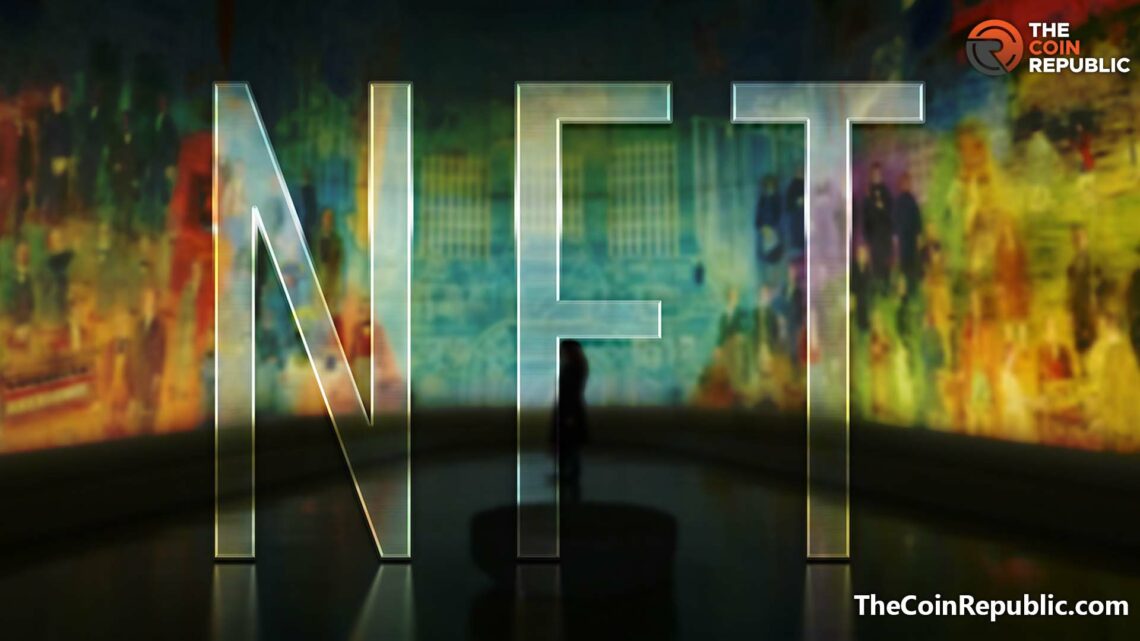As we know, Ethereum has been at the forefront of the digital asset market, with blue chip NFTs searching the network for cheaper, more efficient alternatives. As a result, many are asking who will take the spotlight in the NFT market and what the future holds for Ethereum.
The NFT market has exploded in popularity over the past year, with everything from digital art to virtual real estate being bought and sold on various platforms. However, as the market has grown, so too have the fees associated with using Ethereum, which has become the de facto standard for NFT creation and trading.
In response, some of the biggest names in the NFT world have started to leave Ethereum in search of more affordable alternatives. For example, in 2021, the digital art marketplace Art Blocks announced that it would move to Polygon, a layer-two scaling solution for Ethereum that offers faster and cheaper transactions.
Similarly, the virtual world platform Decentraland announced it would move to the Polygon network to reduce user transaction costs. These moves have led many to question the future of Ethereum in the NFT market.
Despite these developments, Ethereum remains a crucial player in the NFT space, and it will likely continue to be so for the foreseeable future. This is partly due to the network’s robust infrastructure and developer community, which have helped create a rich ecosystem of tools and platforms for NFT creation and trading.
For example, OpenSea, the largest NFT marketplace, continues to operate on the Ethereum network and has seen explosive growth in recent months.
Ethereum has several advantages over its competitors, making it well-suited for the NFT market. For example, Ethereum’s large and active developer community constantly works to improve the network and create tools and platforms for NFT creation and trading.
Moreover, Ethereum has established itself as a trusted and reliable network, critical for any market that relies on the secure and transparent exchange of digital assets. This has helped to attract a wide range of users to the network, including artists, collectors, and investors.
Another advantage of Ethereum is its ability to support smart contracts, which are self-executing contracts with the terms of the agreement between buyer and seller being directly written into lines of code. This feature enables NFT creators to include complex conditions and rules in their creations.
Furthermore, Ethereum is constantly evolving and improving, with the upcoming Ethereum 2.0 upgrade promising to increase the network’s scalability and transaction speed significantly. This upgrade is expected to substantially reduce the cost and time required to create and trade NFTs on the Ethereum network.
In the short term, Ethereum will likely continue to face competition from other networks, such as Polygon and Solana, which are increasingly used for NFT creation and trading. However, it is also likely that Ethereum will continue to play a significant role in the NFT market.
This is because Ethereum has established itself as a trusted and reliable network, critical for any market that relies on the secure and transparent exchange of digital assets.
Additionally, the network’s ability to support smart contracts and the Ethereum 2.0 upgrade will make it an attractive option for NFT creators and traders. In addition to Ethereum, several other networks are emerging as potential players in the NFT market, but Ethereum will likely remain in demand for a long time.

With a background in journalism, Ritika Sharma has worked with many reputed media firms focusing on general news such as politics and crime. She joined The Coin Republic as a reporter for crypto, and found a great passion for cryptocurrency, Web3, NFTs and other digital assets. She spends a lot of time researching and delving deeper into these concepts around the clock, and is a strong advocate for women in STEM.


 Home
Home News
News










